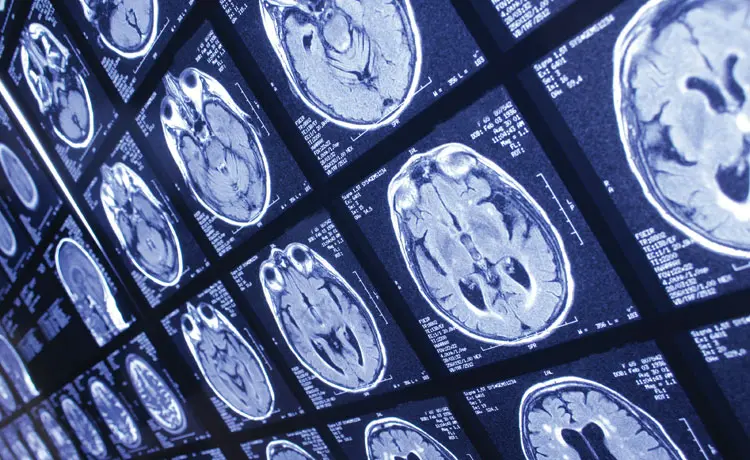Traumatic brain injury (TBI) happens when a bump, blow, jolt or other head injury causes damage to the brain. The severity of the injury ranges from mild to severe.
- Mild: a brief disorientation or loss of consciousness
- Severe: an extended loss of consciousness or a penetrating brain injury
QuickNote: Mild TBI is also known as concussion. Concussions can also occur from a fall or a blow to the body that causes the head to move rapidly back and forth. About 75% of TBIs that occur each year are concussions or other forms of mild TBI.
Every year, millions of Americans suffer brain injuries. As March is Brain Injury Awareness Month, it’s time to call your community’s attention to concussion and other potentially serious conditions.
What are the symptoms of a TBI?
Symptoms may not appear until days or weeks following the injury. A concussion can cause a headache or neck pain, nausea, ringing in the ears, dizziness and tiredness. People with a moderate or severe TBI may have those, plus other symptoms:
- A headache that gets worse or does not go away
- Repeated vomiting or nausea
- Convulsions or seizures
- Inability to awaken from sleep
- Slurred speech
- Weakness or numbness in the arms and legs
- Dilated eye pupils
What are the possible short- and long-term effects of a TBI?
A TBI can cause a wide range of functional short- or long-term changes affecting the following:
- Thinking (i.e., memory and reasoning)
- Sensation (i.e., sight and balance)
- Language (i.e., communication, expression and understanding)
- Emotion (i.e., depression, anxiety, personality changes, aggression, acting out and social inappropriateness)
A TBI can also cause epilepsy and increase the risk for conditions such as Alzheimer’s disease, Parkinson’s disease and other brain disorders
QuickTip: The CDC HEADS UP campaign includes steps to help protect children and teens from concussion and other serious head and brain injuries, both on and off the sports field.
Tips to Cope with the Effects of a Mild TBI
- Write down the things that may be harder than usual for you to remember.
- If you’re easily distracted, try to do one thing at a time. For example, don’t watch TV while fixing dinner.
- Consult with family members or close friends when making important decisions.
- Avoid sustained computer use, including video games, early in the recovery process.
- Some people report that flying in airplanes makes their symptoms worse shortly after a concussion.
Tips to Promote Recovery from a Mild TBI
- Get lots of rest. Don’t rush back to daily activities such as work or school.
- Avoid doing anything that could cause another blow or jolt to the head.
- Ask your health care professional when it’s safe to drive, ride a bike or use heavy equipment. Your ability to react may be slower after a brain injury.
- Only take medications your health care provider has approved.
- Don’t drink alcohol until your health care provider says it’s OK.
Help Prevent TBI in your Home and Community
There are many ways to reduce the chances of sustaining a TBI, including the following:
- Buckle your children in the car using a child safety seat, booster seat or seat belt (according to the child's height, weight and age).
- Never drive while under the influence of alcohol or drugs.
- Wear a helmet, and make sure your children wear helmets, when biking, playing contact sports, skateboarding, batting and running bases in baseball or softball, horseback riding and skiing or snowboarding.
- Remove tripping hazards in your home, such as throw rugs and clutter.
- Use safety gates at the top and bottom of stairs when young children are around.
- Make sure playground surfaces are made of shock-absorbing material, such as hardwood mulch or sand.
For more information on the various products available to purchase for your community, browse the QuickSeries® library of health guides, including Recovering from Traumatic Brain Injury for Service members and Veterans.
